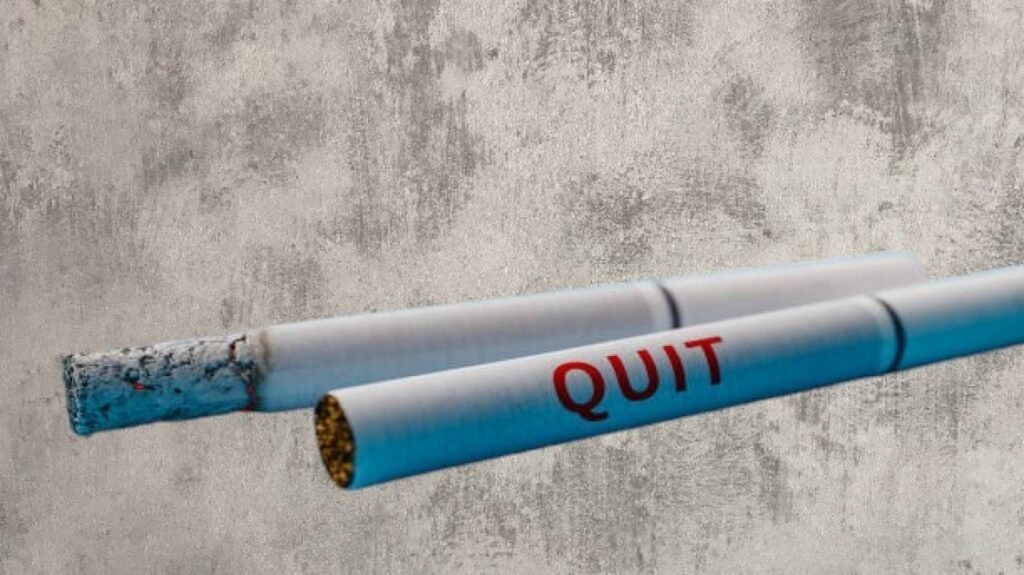This article delves into ten unhealthy habits that can negatively impact on our health, emphasizing that these habits can shape our well-being in the future. It provides practical solutions to break free from these harmful habits and promotes overall health.
Healthy Living is a lifelong commitment to physical and mental well-being, focusing on daily choices like eating and managing stress. Healthy Living is not a trend, but a lifelong commitment to prevent chronic illness and fatigue, according to wellness expert Dr. Samantha Green.
Habits like skipping meals, overeating sugar, and neglecting physical activity can lead to serious health complications like obesity, diabetes, and cardiovascular diseases. To transform your life, identify these habits and replace them with healthier alternatives that nourish both your body and mind.
Research emphasizes the importance of maintaining balance in all aspects of life, including nutrition and emotional health. The American Heart Association suggests adopting a holistic approach to healthy living can reduce disease risk and improve quality of life.
Tools like Fitbit Charge 5 and Hydro Flask can help track physical activity and support fitness goals, while a reliable water bottle like Hydro Flask encourages hydration and natural body functions. While not quick fixes, these products can be powerful catalysts for wellness.
In summary, change requires persistence, awareness, and the right tools. Focus on small daily choices that will transform your life over time, ensuring long-term success.
Why You Need to Ditch These Habits for a Healthier Life
A healthy lifestyle is essential in today’s fast-paced world, enhancing physical and mental well-being, reducing chronic disease risk, and increasing life expectancy, but many are unaware of detrimental habits.
The Impact of Negative Habits on Health
Negative habits like skipping meals, consuming processed foods, and not exercising can lead to health issues like obesity, heart disease, diabetes, and certain cancers, requiring small lifestyle changes.
Studies reveal that 80% of chronic diseases can be prevented through proper diet, exercise, and mental health management, reducing the risk of conditions like high blood pressure and cholesterol.
Mental Health: The Overlooked Factor
Mental health is often overlooked in healthy living, with stress, anxiety, and poor mental health significantly impacting physical well-being, causing weakened immune function, weight gain, and digestive issues.
Dr. Daniel Reynolds explains that our emotional well-being directly impacts our body’s disease-fighting abilities, as mental strain increases our immune system’s susceptibility to illnesses.
Mindful.org offers guided meditation to enhance emotional resilience and manage stress effectively, promoting a healthier body. Prioritizing mental health through mindfulness practices, therapy, and meditation can improve both emotional and physical health.
The Link Between Diet, Exercise, and Disease Prevention
The combination of a balanced diet and regular physical activity is crucial for healthy living, as it prevents various diseases and releases endorphins, which reduce stress and improve mental clarity, according to scientific research.
Nutrition is crucial for disease prevention, with antioxidant-rich foods combating inflammation. A balanced diet of whole grains, fruits, vegetables, and lean proteins supports optimal body function. Nutribullet, a high-performance blender, can enhance nutrient-dense smoothies, boosting immunity.
Reducing the Risk of Chronic Illness
Quitting unhealthy habits and adopting a healthier lifestyle reduces chronic illnesses like lung cancer and heart disease. Quitting smoking before 40 can increase life expectancy by up to 10 years. Nicorette can help with the withdrawal process, making it easier to transition to a smoke-free lifestyle.
Consuming excessive amounts of sugar, processed foods, and unhealthy fats increases the risk of metabolic diseases like type 2 diabetes and heart disease. Instead, use healthier alternatives like Hydro Flask for hydration and overall metabolic health.
The Ripple Effect of Positive Habits
Adopting healthy living habits not only benefits your immediate well-being but also sets a positive example for others, especially children and younger family members. Healthy living individuals experience better productivity, improved cognitive function, and stronger relationships due to increased energy and focus.
Maintaining physical and mental wellness leads to improved career success, better time management, clearer decisions, and less burnout in the professional context.
Final Thoughts
Quitting unhealthy habits is crucial for improving quality of life. As healthy living becomes more important, individuals realize the benefits of adopting better habits. Although challenging, healthy living reward outweighs the effort, as each small step can lead to lasting change.
Eliminating unhealthy habits leads to a healthier, longer, and more fulfilling life. Start small, stay consistent, and enjoy the rewards of a healthier lifestyle.
Understanding the Impact of Bad Habits on Your Health
Unhealthy habits, such as poor diet, lack of sleep, and insufficient physical activity, can significantly impact on your health. This section explores how these habits can hinder a healthy living lifestyle, the science behind their effects, and the importance of adopting healthier practices for long-term vitality.
The Connection Between Bad Habits and Chronic Disease
Research indicates that poor lifestyle choices, including unhealthy habits, can increase the risk of chronic diseases like heart disease, diabetes, and obesity, with one small mistake potentially leading to long-term health issues.
High-processed, sugar-rich diets are linked to increased risks of cardiovascular disease and diabetes. These unhealthy choices weaken the immune system, increase inflammation, and contribute to hormonal imbalances. Improving sleep, stress, and sedentary behavior can reduce these risks. Changing diets, improving sleep, and exercising can help reduce chronic conditions.
How Bad Habits Accelerate Aging and Reduce Quality of Life
Lifestyle choices like smoking, excessive alcohol consumption, and lack of physical activity contribute to premature aging. Smoking accelerates collagen breakdown, causing wrinkles and dryness. Poor sleep decreases cell regeneration, causing visible signs of aging.
Dr. Maria Lopez, a dermatologist and aging expert, emphasizes that the body’s healing abilities are limited by proper tools and environment, and neglecting health can lead to premature signs of aging.
Promoting healthy living habits like regular physical activity, a diet rich in antioxidants, and proper sleep can slow the aging process. Collagen supplements and anti-aging skincare products can also support skin health and promote cellular repair.
The Impact of Mental Health on Physical Health
Physical health is often prioritized, but mental health is equally crucial. Neglecting stress management habits can lead to physical issues like high blood pressure, digestive issues, and weakened immunity.
Chronic stress leads to elevated cortisol levels, impairing immune function and increasing inflammation, weakening the body’s ability to fight infections and recover from injuries. Mental stress directly affects physical health, creating a downward spiral if not addressed.
Mental health app like Mindful.org promotes relaxation and mindfulness, reducing stress and improving overall health. Daily 10-minute meditation sessions can reset the nervous system, promoting a balanced lifestyle and a healthier mindset.
Long-Term Effects of Bad Habits: Why Prevention is Key
Unhealthy habits accumulate over time, contributing to chronic disease and aging. Preventatively addressing lifestyle factors is crucial for preventing illness. It involves healthier choices and nurturing the body’s natural self-healing capacity, setting it up for a healthier future.
Maintaining a healthy lifestyle through small habits like a nutritious diet, regular exercise, and hydration can prevent future health issues. Replacing unhealthy habits with positive ones ensures long-term health. A holistic approach to wellness fosters lifelong vitality through incremental routine improvements.
Final Thoughts
Breaking free from unhealthy habits involves claiming control over your health, happiness, and future. Every small choice you make today influences your long-term well-being, affecting energy levels and disease risk. Replacing harmful patterns with positive behaviors is progress, strengthening your body, sharpening your mind, and building resilience. Your health is your most asset, so nurture and protect it. Start today.
10 Shocking Habits You Need to Quit Now for a Better Tomorrow
This article reveals ten habits that can sabotage our health over time, including eating right, exercising, and getting enough sleep. It provides tips on how to quit these habits and encourages readers to break free from them to achieve true well-being and make the most of their health journey.

Skipping Breakfast: A Deal Breaker for Your Health
Skipping breakfast is a common habit, but it can have long-term health consequences. Making slight changes can lead to meaningful results in your healthy living journey, highlighting the importance of a balanced diet.
Why Breakfast is the Most Important Meal of the Day
Breakfast is crucial for daily nutrition and energy, as it provides the body with essential nutrients and energy. Skipping breakfast can lead to fatigue, irritability, and weight gain, as the body functions like a car engine, requiring proper fuel after an overnight fast to ensure optimal performance.
How Skipping Breakfast Affects Your Metabolism
Lack of breakfast leads to “starvation mode,” slowing metabolism and energy conservation, making fat burn harder. Skipping breakfast increases the risk of overeating later in the day. Studies show that healthy breakfasts maintain a balanced weight, as skipping breakfast impairs insulin sensitivity, disrupts sugar processing, and increases the risk of developing type 2 diabetes.
How to Make Healthy Breakfast Choices
A balanced breakfast should include lean protein, fiber, and healthy fats. Greek yogurt with berries and nuts is a great option, providing protein, fiber, and antioxidants. A smoothie with spinach, avocado, and Vital Proteins Collagen Peptides is another quick and easy option. Whole grains like oats or quinoa provide steady energy, promote better digestion, and heart health.
The Science Behind Breakfast and Brain Function
A healthy breakfast boosts cognitive performance, memory, and concentration, making it crucial for professionals and students. The brain consumes more glucose than any other organ, and without proper fuel, it cannot function at its best.
Breakfast for Better Long-Term Health: A Preventative Measure
Regular breakfast consumption can prevent chronic diseases, reduce the risk of cardiovascular disease and obesity, and positively impact cholesterol levels. It is essential to start the day with a nutritious breakfast to optimize your Healthy Living routine and improve overall health.
Practical Breakfast Solutions for Busy Mornings
Many people skip breakfast due to time constraints, but there are quick, nutritious options like RXBAR Protein Bars or overnight oats that provide a convenient, grab-and-go meal, making them ideal for busy individuals who prioritize their health.
Meal prep involves preparing multiple breakfast meals in advance to avoid skipping breakfast, even on busy mornings, ensuring a quick and satisfying breakfast experience.
Overcoming the Mentality of “Not Being Hungry” in the Morning
People often skip breakfast due to not feeling hungry in the morning. Establishing a regular breakfast routine can counteract this feeling, as the body becomes accustomed to eating breakfast daily.
A Simple Habit with Huge Rewards
Skipping breakfast negatively impacts metabolism, brain function, and long-term health. Incorporating a nutrient-rich breakfast boosts energy, improves concentration, and reduces chronic disease risk, forming a solid foundation for healthy living.

Overloading on Sugar: The Silent Killer
Excessive sugar intake in modern diets leads to health issues, sabotaging healthy living. Reducing sugar intake without feeling deprived is crucial for maintaining overall health.
The Hidden Dangers of Excess Sugar
Excessive sugar consumption leads to chronic diseases like obesity, diabetes, heart disease, and cancer. Research from the American Heart Association shows increased liver fat accumulation and blood pressure.
Excessive sugar intake can lead to chronic inflammation, compromising metabolic health and immune function. It is crucial to be aware of hidden sugars in sweets, processed foods, and flavored yogurt.
How Sugar Affects Your Body: The Ripple Effect
Sugar disrupts body systems, causing blood glucose spikes, insulin resistance, type 2 diabetes precursor, and fat accumulation in vital organs, increasing cardiovascular disease risk.
Sugar overload triggers brain reward system, leading to addiction-like behavior, overconsumption, and cognitive function issues like brain fog and poor concentration, making it difficult to break the habit.
The Sweet Trap: How We are Consuming More Sugar Than We Realize
A study by the American Heart Association reveals that the average American consumes nearly 17 teaspoons of added sugar daily, exceeding the recommended limit of 6 and 9 teaspoons.
Sugar, often hidden in processed foods like ketchup, salad dressings, and breads, is present in 74% of packaged foods in the U.S.
Reduce Sugar Intake for a Healthier Life
To enhance your healthy living, make small dietary adjustments by being mindful of labels and opting for products with minimal added sugars.
- Swap Sugary Snacks for Whole Foods: Choose natural alternatives like apples or almonds instead of sugary granola bars for essential nutrients without sugar crash, as Blue Diamond Almonds offer healthy, sugar-free snacks.
- Choose Unsweetened Drinks: Hydro Flask water bottles offer a refreshing alternative to sugary drinks, keeping beverages cold and refreshing, making it easier to stay hydrated without relying on sugary drinks.
- Try Natural Sweeteners: Use healthier sweeteners like stevia, monk fruit, or erythritol for added sweetness without causing blood sugar spikes, making them a great substitute for refined sugar in recipes.
- Prioritize Protein and Fiber: Consuming protein and fiber-rich foods like beans, leafy greens, and lean meats can stabilize blood sugar levels, maintain fullness, and reduce sugar cravings.
Healthy Living Alternatives to Refined Sugar
There are several ways to satisfy your sweet tooth without compromising on healthy living. Consider incorporating the following into your meals:
- Dark Chocolate: Select high-quality dark chocolate with at least 70% cocoa, as it is lower in sugar and rich in antioxidants.
- Fruit-Based Desserts: Choose fruit-based alternatives like baked apples with cinnamon or berry smoothies for their natural sugars, rich in vitamins and minerals.
Products to Support a Sugar-Free Lifestyle
- Sugar Detox Supplements: IDEAL PERFORMANCE SugarBalance supplements are designed to aid in healthy glucose metabolism and decrease sugar cravings for those struggling with sugar intake.
- Smart Food Swaps: The Ultimate Paleo Cookbook is a valuable resource for finding delicious, sugar-free recipes that aid in a healthier lifestyle without feeling deprived.
- Healthy Snack Alternatives: RXBAR is a natural snack product that provides protein and energy without added sugars, offering a convenient and nutrient-dense alternative to the sugar trap.
How Sugar Affects Your Gut Health and Immune System
Sugar consumption is linked to gut health, as excess sugar can disrupt gut bacteria balance, causing dysbiosis, affecting digestion and immunity, and weakening immune defenses, thereby affecting overall health.
Sugar consumption can cause gut inflammation, leading to digestive issues and autoimmune conditions. Therefore, it is crucial to reduce sugar intake and prioritize gut-supporting foods. Making informed choices and moderating intake is key for better healthy living outcomes. Using natural sweeteners or adopting cleaner eating habits can help enjoy sweet foods without compromising long-term well-being.

Not Getting Enough Sleep: The Hidden Danger
This section discusses the impact of insufficient sleep on health, offers expert advice on improving sleep hygiene, and discusses tools to optimize rest for better health, emphasizing the importance of quality sleep in our fast-paced world.
The Connection Between Sleep and Your Health
Sleep is crucial for the body’s functioning, including cognitive and immune health. Chronic sleep deprivation can lead to health issues like heart disease, diabetes, and obesity, and negatively affect mood, making effective stress management difficult. Therefore, it is essential to prioritize sleep for overall well-being.
Inadequate sleep negatively impacts cognitive performance, reducing focus and decision-making abilities. A consistent sleep routine is crucial for a strong, healthy mind and body, as multitasking demands it.
The Impact of Sleep Deprivation on Your Immune System
Sleep is crucial for supporting the immune system, and those who sleep less than six hours are more susceptible to illness due to weakened immune responses. Inadequate sleep also increases cortisol levels, which can further suppress immune function.
Prioritizing sleep strengthens immune defenses and prepares the body for illness, as it is the body’s natural defense mechanism.
Strategies for Improving Your Sleep Hygiene
There are various methods to enhance sleep hygiene and ensure adequate sleep for a healthy living routine.
- Establish a Consistent Sleep Schedule: Consistency in sleep patterns is crucial for regulating the body’s internal clock, facilitating better sleep and waking up refreshed, as the body thrives on routine and can significantly improve sleep quality.
- Create a Sleep-Friendly Environment: To promote relaxation, create a dark, quiet, and cool bedroom environment. Use blackout curtains and a white noise machine for comfort. The Hatch Restore 3, a smart sleep system with customizable sounds and lights, is recommended.
- Limit Exposure to Screens: Blue light from smartphones and computers can disrupt melatonin production, affecting sleep regulation. To enhance sleep quality, avoid screens at least an hour before bedtime, promoting natural brain relaxation.
- Adopt Relaxing Pre-Sleep Rituals: Calming activities like reading and meditation prepare the mind and body for rest, while app like Mindful.org offers guided sessions for stress reduction and improved sleep.
Products to Enhance Sleep Quality
To enhance your sleep routine, consider using products that promote deeper, more restorative sleep, as technology has made it easier to track and improve sleep quality. Here are some top products to support your sleep goals:
- Withings Sleep Tracking Pad: The product is a sophisticated sleep tracker that monitors sleep cycles, providing detailed insights into sleep patterns, which can motivate individuals to enhance their sleep habits.
- TEMPUR-Pedic Mattresses: TEMPUR-Pedic mattresses are designed to provide optimal support and comfort, ensuring a high-quality sleep experience.
- Philips Sonicare Smart Electric Toothbrush: Brushing teeth before bed can significantly improve sleep quality by reducing discomfort and promoting relaxation, thereby setting the tone for a peaceful night’s sleep.
Practical Solutions
A healthy lifestyle involves not only proper nutrition and regular exercise but also informed health decisions, including sleep. Prioritizing sleep ensures energy for effective health goals and is the foundation for all other health decisions.
To monitor your sleep patterns, use products like Withings Sleep Tracking Pad or Fitbit Charge 5, which provide data on your sleep patterns and whether it is restorative or not.
This section provides strategies for adopting healthy living practices that prioritize rest, nutrition, and exercise, with the goal of ensuring good sleep.

Ignoring Mental Health: Your Mind Matters
Mental health is often overlooked in our fast-paced world, leading to emotional and physical health issues. Neglecting mental health can undermine overall wellness, highlighting the importance of prioritizing physical health.
The Profound Impact of Mental Health on Overall Health
Mental health impact’s cognitive function, emotional balance, and physical health. Chronic stress, anxiety, and depression can cause physical symptoms like fatigue, heart disease, and high blood pressure, posing a significant health risk.
Untreated mental health conditions, such as depression or anxiety, can lead to unhealthy habits like poor eating, exercise, and sleep, resulting in a negative impact on healthy living.
Integrating Mental Wellness into Your Daily Routine
Mindfulness practices like meditation and deep breathing can significantly reduce stress levels and help manage anxiety and stress by staying in the present moment.
Regular social interactions are crucial for mental wellness, as they foster meaningful relationships and emotional support, enhancing resilience, coping with daily pressures, and reducing stress.
Prioritizing Mental Health
- Practice Mindfulness: Daily mindful breathing or guided meditation, using the Mindful.org, offers comprehensive experience with various practices tailored to unique needs.
- Seek Professional Support: Onlinetherapy.com offers an online therapy option for individuals seeking effective stress and anxiety management through Cognitive Behavioral Therapy (CBT), a proven method of therapy.
- Physical Activity for Mental Health: Exercise boosts mood and reduces stress by releasing endorphins. Aim for 30 minutes of moderate exercise daily, like yoga or a brisk walk, to maintain overall health.
- Establish Healthy Sleep Habits: Sleep is vital for mental and physical health, and a consistent schedule and restful environment can enhance sleep quality. Utilize a sleep tracker like Withings Sleep Analyzer for improved rest.
- Limit Social Media Exposure: Social media can enhance connectivity but can also cause feelings of isolation and anxiety. Reducing social media use and unfollowing negative influences can enhance mental well-being.
Addressing the Stigma of Mental Health
Mental health stigma persists in many communities, but it is becoming increasingly recognized as a vital aspect of healthy living, with experts highlighting seeking help as a self-preservation act.
The stigma surrounding mental health needs to be dismantled, and individuals should feel empowered to seek help and prioritize their emotional health as part of their overall wellness strategy.
Breaking Through the Barriers to Mental Health Care
Mental health improvement faces challenges in accessing care, especially in expensive and difficult regions. Telehealth services like Onlinetherapy.com provide affordable, flexible therapy options from the comfort of the home, making professional support more accessible.
Mental health should not be a luxury; it is crucial for maintaining a healthy lifestyle. Integrate mental health practices into daily routines, like physical activity or healthy eating, shifting priorities.

Sitting Too Much: The Biggest Threat to Your Longevity
Excessive sitting in the modern world poses a significant health threat, contributing to long-term health risks. Understanding the science behind this habit is crucial, and actionable steps to combat it are being explored.
The Dangers of Prolonged Sitting
Extended sitting is linked to chronic health conditions such as cardiovascular disease, obesity, diabetes, and cancer. It slows metabolism, increases insulin resistance, and places additional stress on joints, causing visible and invisible health issues over time.
Sitting for extended periods without breaks can lead to poor posture, musculoskeletal issues like back and neck pain, and increased risk of serious health conditions, even with regular exercise, according to the American Heart Association. The issue extends beyond physical activity.
How Sitting Impacts Your Longevity
Sitting can significantly impact longevity by disrupting blood circulation, affecting heart function, increasing clot risk, and leading to muscle degeneration, reducing efficient calorie burning, resulting in weight gain and metabolic issues.
The National Institutes of Health’s research indicates that prolonged sitting increases the risk of early death by 20-40% compared to more active individuals, emphasizing the need to address the negative effects of sitting in a healthy living lifestyle.
How to Break Free from the Sedentary Lifestyle
Breaking free from a sedentary lifestyle does not necessitate drastic changes. Here are some simple yet effective steps you can take into your day to reduce the harmful effects of sitting:
- Take Regular Breaks: Regular standing or walking for 30-60 minutes, including a quick 2-minute stretch, can improve circulation and energy levels, and using timers or apps can remind you to get up.
- Incorporate Movement into Your Day: Making simple changes like using stairs instead of elevators or walking during phone calls can significantly improve health.
- Standing Desks: A standing desk is recommended for long-term jobs that require prolonged sitting, as it promotes better posture and reduces risks associated with prolonged sitting.
- Exercise: Regular exercise is crucial for maintaining a healthy lifestyle, and even a brief walk during lunch or a 15-minute workout after work can mitigate the negative effects of sitting.
The Role of Fitness Gadgets in Promoting Movement
Fitbit Charge 5, a popular fitness tracker, monitors steps and heart rate, promoting regular movement. It is particularly useful for those who need constant reminders to stay active, especially those who sit for long hours at work.
The Vari VariDesk Pro Plus 36 Electric, equipped with motorized options, offers a seamless transition between sitting and standing, improving energy levels and reducing discomfort, alongside wearables.
Why Small Changes Lead to Long-Term Health Benefits
Sitting can have negative effects on health and longevity. To combat this, adopt a holistic approach to healthy living that incorporates more movement throughout the day. This not only mitigates the risks of prolonged sitting but also enhances your quality of life. Making movement part of your daily routine is the best way to combat the dangers of sitting, as every small step count overtime.
Making Movement a Priority
Prolonged sitting is a significant threat to longevity, but it is preventable. Regular breaks, daily movement, and investing in tools like standing desks and fitness trackers can counteract its harmful effects. These changes not only improve physical health but also support overall well-being, leading to a healthier life.
Healthy living involves creating balanced habits for a more active and fulfilling life, and making small adjustments to break free from a sedentary lifestyle is crucial for better health.

Smoking: A Choice You Can Still Change
Smoking is a harmful habit that affects both the smoker and those around them. Quitting is difficult, but with the right support and mindset, it is possible. This section explores the impact of smoking on health, the importance of quitting, and tools to help transition to a healthier lifestyle.
The Immediate and Long-Term Effects of Smoking on Your Health
Smoking significantly increases the risk of chronic diseases like cardiovascular disease, respiratory issues, and cancer. Every puff increases the risk of lung and heart problems. However, quitting smoking can lead to immediate body healing.
Quitting smoking not only improves your overall quality of life, but also increases energy levels, lung capacity, and sense of taste and smell. It takes 20 minutes to drop heart rate and blood pressure, and 12 hours to return to normal.
How Smoking Affects Your Mental and Emotional Well-Being
Smoking not only affects physical health but also mental health, leading to increased anxiety, depression, and stress. While cigarettes are often used to manage emotional stress, their temporary use exacerbates these issues in the long run.
Mindfulness practices like meditation and breathing exercises can provide emotional relief and promote a healthier living mindset, making them essential for those seeking emotional relief.
The Benefits of Quitting Smoking: It is Never Too Late
Quitting smoking offers numerous benefits, including immediate body repair, improved circulation, reduced risk of coronary heart disease by 50% within one year, and a return to a non-smoker’s risk of stroke over a five-year period.
Quitting smoking is a gradual process that offers cumulative health benefits, and it is never too late to do so, as your body can heal and regain vitality.
Products to Help You Quit Smoking
Having the right tools, such as products on the market, can significantly aid in quitting smoking, reducing cravings and providing necessary support. Here are some proven solutions:
- Nicotine Replacement Therapy (NRT): Nicotine Replacement Therapy (NRT) is a popular method for quitting smoking, using products like nicorette nicotine patch, nicorett gum, and lozenges to manage cravings and withdrawal symptoms.
- Smoking Cessation Apps: Technology has revolutionized smoking cessation with apps like Smoke Free, which track progress, set goals, provide motivation, and monitor health improvements over time.
- Quit-Smoking Support Groups and Counseling: Joining support groups or seeking professional counseling can help smokers stay motivated and increase their success rate in quitting smoking.
- Vaping as a Transition Tool: Vaping has been used as a transitional tool to quit smoking, although long-term effects are still under scrutiny. The top vaping products that offer a step-down method, emphasizing the need for responsible use.
Quitting Smoking: Taking the First Step
Quitting smoking starts with a decision, followed by gradual reduction, setting a quit date, and having support tools available to guide the process.
Resilience, dedication, getting expert treatment, and faith in the long-term benefits are all necessary for quitting smoking.
Embracing Healthy Living by Quitting Smoking Today
Quitting smoking is achievable with the help of proven products, apps, and professional resources, making it a crucial habit for a healthier lifestyle.

Not Staying Hydrated: The Power of Water
Maintaining hydration is crucial for overall health, impacting digestion, energy levels, and cognitive function. It is essential to incorporate water consumption into your daily routine to support healthy living.
Why Water is Essential for Your Health
Water is vital for life, transporting nutrients, eliminating waste, supporting energy production, regulating body temperature, and facilitating joint function, yet often neglected.
Dehydration can negatively impact skin health, mental clarity, and mood, leading to brain fog and lack of focus, affecting productivity and overall well-being, and often goes unnoticed.
The Consequences of Chronic Dehydration
Dehydration is not just about thirst; it can lead to headaches, fatigue, irritability, and a weakened immune system. Many mistake symptoms for other conditions, causing delays in addressing the issue. Chronic dehydration can cause kidney stones, urinary tract infections, and impaired digestion.
Dehydration can lead to chronic health issues like constipation, kidney disease, and cardiovascular conditions, making it crucial to maintain proper hydration as a lifelong commitment to healthy living.
How Much Water Should You Be Drinking?
The “8×8 rule” suggests aiming for eight 8-ounce glasses of water daily, but actual amounts depend on activity level, climate, and health conditions. Adults typically need 2.7 to 3.7 liters, but it is crucial to adjust based on body signals.
Physical activity, climate, and pregnancy may necessitate increased water intake, requiring athletes and regular exercisers to prioritize hydration, especially after workouts, to replenish lost fluids.
Creative Ways to Stay Hydrated Throughout the Day
Maintaining hydration can be a fun and sustainable task by incorporating various strategies.
- Infused Water: Infuse water with natural flavors like fruits, herbs, or spices, such as lemon, cucumber, or mint, to enhance its taste and offer additional health benefits.
- Drink During Meals: Drinking water before and during meals is a beneficial habit for hydration, digestion, and promoting satiety, which is essential for healthy eating.
- Hydrating Foods: To achieve daily hydration goals, consider incorporating high-water-content foods like watermelon, cucumbers, and celery into your diet alongside drinking water.
Smart water bottles like Hidrate Spark PRO Smart Water Bottle offer convenient hydration tracking and reminders, making them ideal for busy schedules and those committed to healthy living.
Using Technology to Track Your Hydration
Modern tech solutions like WaterMinder enable users to monitor and optimize their hydration levels, synchronizing with their smartphones. These apps track water intake, helping individuals stay on track with their hydration goals, especially for those balancing work, travel, and a demanding lifestyle.
Fitbit Charge 5 wearables feature hydration tracking, allowing users to monitor hydration alongside other wellness metrics like exercise and sleep patterns, promoting a holistic approach to healthy living lifestyle and wellness.
Common Mistakes in Hydration and How to Avoid Them
Drinking only when thirsty is a common mistake, as thirst often indicates dehydration. To avoid this, aim on drinking throughout the day and keep a water bottle nearby for reminders.
Relying too heavily on caffeinated or sugary beverages can lead to dehydration due to their diuretic properties. Opt for plain water or electrolyte-rich drinks to maintain hydration levels. Balance out caffeine and alcohol intake with an additional glass of water for every cup of coffee or alcoholic drink.
The Best Hydration Products to Support Healthy Living
Various products are designed to assist individuals in maintaining proper hydration, promoting Healthy Living in all aspects of life.
- Smart Water Bottles: Hidrate Spark Pro Smart Water Bottles integrate with phones to monitor water intake and provide real-time reminders, ensuring daily hydration.
- Electrolyte Supplements: LMNT Electrolyte Drink Mix is a product designed to aid in the replenishment of lost electrolytes and maintain optimal hydration levels during intense physical activity.
- Hydration Apps: WaterMinder and Plant Nanny are effective tools for maintaining hydration goals while making it enjoyable.
Hydration Is Key to Healthy Living
Hydration is crucial for healthy living, as it supports cellular functions and prevents chronic health issues. Consistent water intake improves energy, mental clarity, digestion, and prevents chronic diseases. Innovative products and hydration-friendly habits can help maintain long-term health, making water a valuable investment.

Skipping Exercise: Small Changes That Yield Big Results
Regular exercise not only enhances physical fitness but also boosts mental clarity, energy levels, and overall well-being, making it a crucial habit for healthy living, despite the perceived time, energy, and effort required for it.
The Power of Movement: Understanding Why Exercise is Crucial for Your Health
Movement is crucial in fitness programs, as even insignificant amounts can improve cardiovascular health, reduce chronic diseases, and extend longevity. Regular exercise enhances mood, combats stress, and improves cognitive function, making it essential to incorporate physical activity into daily routines. Therefore, every movement counts.
Quick and Easy Ways to Incorporate Exercise into Your Day
Exercise benefits do not require an intense gym routine; there are numerous ways to stay active, many of which can be integrated into your existing lifestyle.
- Walking More Often: Increase daily step count by walking for at least 30 minutes daily, either during lunch or post-dinner, to reduce heart risk and improve joint health, according to studies.
- Stretching and Mobility Work: Regular stretching and mobility exercises improve flexibility, reduce stress, and enhance physical well-being. Using a foam roller like the TriggerPoint GRID Foam Roller can alleviate muscle tightness and prevent injuries, while regular stretching helps maintain joint flexibility, especially as you age.
- Taking the Stairs: Using stairs instead of elevators or escalators is a simple yet effective way to incorporate exercise into your daily routine, promoting muscular endurance and strength, especially for multi-story workers.
- Deskercise (Exercises at Your Desk): Integrating movement into your workday, such as chair squats, seated leg raises, or standing up and stretching every 30 minutes, can significantly improve workplace health. Consider investing in a standing desk like the FlexiSpot Standing Desk, which can be adjusted to your height for easy transition.
- Short but Intense Workouts: HIIT, a short, intense workout, is effective in increasing metabolism, burning fat, and improving cardiovascular fitness. Freeletics offers tailored workouts that require only a few minutes a day.
How to Build Consistency in Your Exercise Routine
Maintaining consistency in exercise routines is challenging due to distractions and other commitments, but creating a sustainable plan is crucial.
- Set Realistic Goals: Start small by aiming for two to three weekly workouts, gradually increasing frequency to avoid overwhelm and build a lasting healthy living habit, rather than setting ambitious goals immediately.
- Track Your Progress: Tracking workouts with apps like MyFitnessPal or Fitbit can be highly motivating, as it allows users to see tangible results over time, fostering commitment.
- Find an Accountability Partner: Workout partner, whether a friend, family member, or online community, can significantly boost exercise routine stickiness and accountability, fostering lasting healthy living habits.
The Science Behind Exercise and Longevity
Longevity is not solely determined by diet but also by active healthy living lifestyle, which can delay the onset of age-related conditions like osteoporosis and arthritis, preserve muscle mass, support joint function, and promote cellular health.
Overcoming the Barriers to Exercise
Exercise benefits are well-documented, but many struggles due to time constraints, fatigue, or perceived physical limitations. Solutions exist to overcome these barriers.
- Time Constraints: Shorten your workouts with more intense exercises, such as 15 minutes of High Intensity Interval Training (HIIT), as even 15 minutes can significantly improve your fitness.
- Fatigue: Exercise boosts energy levels, combating fatigue and recharging energy through brief walks or light stretching.
- Physical Limitations: Low-impact activities like swimming and cycling are beneficial for individuals with joint issues, while resistance bands offer a low-impact way to build strength.
Exercise Does not Have to Be Hard
Exercise is crucial for healthy living, but it does not require extensive workouts. Consistency and enjoyment in movement can significantly improve overall health, whether it is walking, stretching, or short, intense workouts.

Procrastinating on Health Goals: Act Now
Procrastination is a significant obstacle to achieving healthy living in today’s fast-paced world. Understanding the reasons behind procrastination and taking proactive steps to create lasting changes can help overcome this issue.
Why Procrastination Can Undermine Your Health Goals
Procrastination is not just about lack of motivation; it stems from emotional blocks like fear of failure, perfectionism, or overwhelm, leading to long-term stress, anxiety, and poor physical health when not addressed.
Delaying health goals can lead to frustration and inadequacy, perpetuating a cycle that can be disrupted with the right strategies and tools.
The Cost of Delaying Your Health Goals
Delaying healthy living goals not only impacts physical health but also overall well-being, potentially leading to serious issues like weight gain, diabetes, or mental burnout, as each delay is another day lost.
Delaying healthy living goals not only impacts physical health but also overall well-being, potentially leading to serious issues like weight gain, diabetes, or mental burnout, as each delay is another day lost.
Breaking Down Procrastination: The Power of Small Steps
To combat procrastination, break down goals into manageable tasks, such as incorporating more vegetables into lunch instead of focusing on the grand outcome of healthy living, like losing thirty pounds.
Focusing on small, realistic goals is crucial for long-term success. Utilizing tools like Habitica and Strides can help keep you accountable and track progress on health goals, preventing overwhelming and promoting steady progress.
Creating an Action Plan: How to Start Right Now
To overcome procrastination, create a personalized action plan to stay focused and organized, even during busy times, to make progress towards healthy living goals.
- Set Clear and Specific Goals: To be more precise, instead of stating “I want to be healthier,” say “I will walk 30 minutes every morning before work.”
- Make a Schedule: To maintain good health, allocate time for health-related activities like meal planning and exercise, such as setting aside Sundays for meal prep to prepare for the week ahead.
- Celebrate Small Wins: Celebrate your successes by rewarding yourself with healthy snacks or self-care, as it boosts motivation and encourages you to continue working towards your goals.
- Track Your Progress: Utilize apps, journals, or spreadsheets to monitor your health progress, as it helps in reinforcing positive behavior by recording accomplishments.
Overcoming the Mental Blocks: Shifting Your Mindset
Mindset is crucial for achieving healthy living goals. Shifting from a future-focused mindset to an immediate action mindset can help manage procrastination by focusing on today’s control.
Avoid setbacks, cultivate a self-compassionate mindset, and prioritize progress over perfection. Healthy living is a process rather than a final goal.
How to Break Procrastination
Including products in your healthy living routine can simplify the process of achieving your objectives. Here are a few products to consider:
- MyFitnessPal: This is a widely used app that aids in tracking calories and monitoring your diet.
- Fitbit Charge 5: A fitness tracker is a device that aids tracking physical activity and promotes daily movement.
- The 5-Minute Journal: A journal that promotes daily gratitude and goal setting can aid in the development of positive habits.
Making It Stick: Strategies for Long-Term Success
To maintain healthy living habits, it is crucial to remain engaged and adaptable. Enrolling in a fitness program or health coaching service can offer additional support and motivation, guide long-lasting changes and keep you on track.
Precision Nutrition provides a personalized nutrition coaching program that is scientifically proven to help individuals achieve their health goals.
Why Waiting is Not an Option
Procrastination can hinder progress towards healthy living goals. Committing to action today sets the tone for your healthy living journey, and tomorrow’s progress will build on the foundation you have laid now, making it crucial to act today.
Achieving healthy living requires consistent, purposeful action, no matter how small, and taking the first step today is all it takes to begin a transformative journey.

Eating Processed Foods: Making Healthier Switch
Processed foods, high in artificial additives, sugars, and unhealthy fats, hinder a healthy lifestyle, increase weight gain and chronic diseases like heart disease, diabetes, and hypertension. Switching to whole, nutrient-dense foods can improve physical and mental health.
The Hidden Dangers of Processed Foods
Researchers have found that excessive consumption of processed foods disrupts the body’s nutrient balance, leading to long-term health issues. These foods lack vitamins, minerals, and fiber, and elevated levels of added sugars and trans fats are linked to obesity, metabolic disorders, and cognitive decline.
Processed foods, high in sodium, can cause blood pressure and heart disease. Healthy living involves reducing sodium and consuming nutrient-rich foods for longevity.
How to Make a Healthier Switch
To eliminate processed foods from your diet, be more aware of what you are eating, read labels carefully, and avoid products with excessive preservatives, artificial sweeteners, and hydrogenated oils, especially if the ingredient list is lengthy or difficult to pronounce.
Transitioning to a whole-food diet does not need drastic changes. Start by replacing processed foods with fresh fruits, vegetables, lean proteins, and whole grains. This will improve energy levels, digestion, and mood in just a few weeks.
The Benefits of Whole Foods for Healthy Living
Whole foods, rich in vitamins, minerals, and antioxidants, promote healthy living. Leafy greens like spinach and kale are rich in magnesium, while lean proteins like chicken or tofu provide amino acids for muscle repair. Whole grains like quinoa and brown rice have fiber for digestion and blood sugar stabilization.
Whole foods offer numerous benefits beyond physical health, including improved mental clarity, reduced stress, and emotional stability. The gut-brain connection is stronger than thought, and eating whole foods directly affects mood, energy levels, and mental health.
Eating Less Processed Foods
Transitioning from processed to whole food does not necessitate drastic changes, but it necessitates careful planning. Here are a few actionable tips:
- Meal Prep for Success: Preparing meals in advance ensures healthy options during hunger strikes, and using a Ninja Foodi Pressure Cooker can quickly prepare wholesome meals.
- Shop the Perimeter of the Store: The outer aisles offer fresh produce, meats, and dairy, while the inner aisles typically contain processed foods. Choose the perimeter for healthier choices.
- Snack Smart: Replace chips and cookies with nutritious snacks like Baked Crunchy Apple Chips or fresh nuts, providing fiber and protein for sustained energy.
- Stay Hydrated: Dehydration can often be mistaken for hunger, leading to processed food consumption. Keep a Hydro Flask Water Bottle by your side to maintain hydration throughout the day.
Integrating these practices into your routine can significantly enhance your overall health, energy levels, and well-being.
Top Products to Support Your Healthy Living Transformation
As you embark on your journey to healthier eating, certain products can help streamline the transition:
- Fitbit Charge 5: A fitness tracker is a device that tracks physical activity, enabling users to stay on track with their daily fitness goals.
- Instant Pot Duo Nova: This product is ideal for quick, healthy meals that maintain the nutritional value of your food.
- Nutribullet Pro 900 Blender: This product is ideal for creating smoothies containing fruits, vegetables, and protein-rich ingredients.
- T-fal Optigrill: This user-friendly grill allows for quick and easy preparation of healthy, grilled meats and vegetables.
By incorporating these tools into your routine, you can achieve success and support your objectives of a healthier lifestyle.
Making the Healthy Living Switch: A Lasting Change
Transitioning from processed foods to whole foods is a crucial step towards healthy living. By incorporating fresh fruits, vegetables, and lean proteins, and using tools like meal prep and hydration aids, you can improve your quality of life and enhance your mental and emotional well-being.
Final Thoughts
Healthy Living involves making mindful decisions that support your body, mind, and soul daily. Quitting these ten habits can lead to energy, balance, and longevity.
The path to a healthier life does not happen overnight, but with each step, you invest in your future. Start small, stay consistent, and embrace the change today. Take the first step towards a healthier life.
Top Products to Enhance Your Healthy Living Journey
A healthy living journey requires the right tools, resources, and strategies to optimize daily habits. These products help track fitness progress, manage nutrition, and improve mental well-being. They enhance your routine, making it easier to stay on track and achieve long-term success.
Fitness Trackers: Stay on Top of Your Physical Health
A fitness tracker is a crucial tool for monitoring physical health, providing real-time data on activity levels, heart rate, and sleep quality, aiding in setting goals, motivation, and routine adjustments.
Fitbit Charge 5 is a fitness device with advanced features like heart-rate monitoring, GPS, and sleep tracking, providing a holistic view of physical health, enabling informed exercise and recovery decisions, and allowing real-time results tracking.
Smart Water Bottles: Hydration Made Easy
Smart water bottles are designed to monitor hydration levels, remind users to drink daily, and integrate with fitness trackers to prevent dehydration, fatigue, and long-term health issues.
The Hidrate Spark PRO Smart Water Bottle, with Bluetooth functionality, reminds users to hydrate by tracking their water intake and offering personalized hydration goals, making hydration an essential aspect of fitness.
Meal Prep Solutions: Simplify Healthy Eating
Maintaining healthy eating habits can be challenging due to busy schedules. Planning and preparing meals ahead of time is crucial, and high-quality meal prep containers and tools can streamline this process.
The Prep Naturals Glass Meal Prep Containers are BPA-free, microwave-safe, and durable storage solutions for nutritious meals. They help maintain portion control and allow for weekly meal planning, making meal preparation a simple and sustainable way to maintain healthy eating habits.
Mental Wellness Tools: Strengthen Your Mind
Healthy living involves nurturing both the body and mind. Mental wellness tools like meditation apps and journals help maintain groundedness, reduce stress, and promote a positive mindset, making mindfulness a crucial part of any healthy living routine.
Mindful.org offers guided meditation sessions for stress reduction, improved sleep, and mental clarity, promoting mental wellness and a user-friendly way to integrate mindfulness into daily routines.
Supplementation: Fuel Your Body with Nutrients
Supplements are essential for a balanced diet, especially for those with specific nutritional needs. They can be multivitamins or protein powders, supporting muscle recovery and a healthy lifestyle.
Organifi Green Juice Powder is an organic superfood supplement that provides a natural energy boost and detox support by incorporating greens into your daily routine, containing essential nutrients like spirulina, chlorella, and matcha.
Smart Scales: Track Your Progress Beyond Weight
Smart scales offer a comprehensive view of health by tracking body fat percentage, muscle mass, and BMI, providing insights to refine your health plan and measure overall progress.
The Withings Body+ Smart Scale is a smart tool that monitors body composition over time, providing detailed health metrics reports synchronized with your phone, allowing you to understand the bigger picture of your healthy living journey.
Home Exercise Equipment: Make Workouts Convenient
Home exercise equipment, such as resistance bands and stationary bikes, offers a convenient and time-saving alternative to gym visits, ensuring that fitness goals are met in your own space.
The Peloton Bike is a popular home exercise equipment that offers live and on-demand cycling classes, allowing users to work out at their own pace with expert guidance, making it a great investment for fitness enthusiasts.
Final Thoughts
Investing in top products can enhance your daily routine, promoting a holistic, sustainable approach to healthy living. These tools make healthy habits easier to implement, track, and sustain, making the journey more successful and enjoyable.
Healthy living is a journey, and these products provide essential tools to build lasting, positive habits along the way.
How to Build a Healthy Living Routine That Lasts
A healthy living lifestyle involves creating a sustainable, intentional, and mindful approach to health. It involves understanding your body’s needs, making mindful choices, setting realistic goals, adopting habits that align with personal health, and patience for transformation, rather than perfection.
Set Clear, Achievable Goals
Healthy Living routines are built on setting specific, measurable, attainable, relevant, and time-bound goals (SMART) to ensure their effectiveness.
Identifying clear goals is crucial for creating a lasting routine, whether it is improving nutrition, fitness, or mental well-being, as it helps avoid getting lost in daily distractions.
Break down long-term goals into manageable milestones, like incorporating at least two servings of vegetables into daily meals each week instead of aiming for healthier eating.
Prioritize Consistency Over Perfection
Consistency is crucial for success, as research indicates that small, consistent actions yield more sustainable results than sporadic intense efforts.
The statement “perfection is the enemy of progress” emphasizes the importance of consistency in maintaining progress, even if one or two days are missed.
Create a daily schedule and use planners or apps like MyFitnessPal to track meals and workouts, ensuring healthy living even during busy times.
Integrate Mindful Eating into Your Routine
Mindful eating habits, as per Harvard Health research, improve digestion, aid weight loss, and enhance overall well-being by making eating an experience rather than a task.
Understanding your body’s nutritional needs might be facilitated by eating with intention.
Mindful Eating is a tool that allows individuals to eat slowly, savor each bite, and concentrate on their food.
Develop an Exercise Routine That Matches Your Goals
Exercise is essential for Healthy Living, but not all fitness routines are equal; a tailored approach is needed for personal goals like stamina, strength, or flexibility.
The most effective exercise routine involves starting with enjoyable activities and gradually increasing intensity over time.
Invest in high-quality fitness equipment for strength building and flexibility enhancement, such as adjustable dumbbells, yoga mats, and yoga bolsters.
Focus on Mental Well-being
Mental wellness, including meditation, journaling, and stress management techniques, is crucial for a holistic approach to physical health, according to a Mayo Clinic study, which suggests meditation can reduce stress, improve concentration, and boost immunity.
Daily mindfulness practice or guided meditation apps like Mindful.org can enhance focus, emotional balance, and resilience through consistent use.
Get the Right Amount of Sleep
Sleep is crucial for healthy living, supporting cognitive function, immune health, and emotional well-being. In today’s fast-paced world, neglecting sleep can lead to weight gain, mental fog, and increased stress.
The article emphasizes the importance of focusing on improving sleep quality rather than just increasing sleep time, aiming for 7-9 hours of restful sleep.
Utilize sleep trackers like Withings Sleep Analyzer to monitor sleep patterns and enhance rest quality. Implement simple changes like limiting screen time before bed.
Embracing Flexibility and Adaptability
Maintaining a Healthy Living routine that is both consistent and adaptable is crucial to manage unexpected challenges and maintain progress without feeling overwhelmed.
Flexibility is crucial in life, allowing you to adapt to unexpected challenges. Having a backup plan, such as a 10-minute home workout or a walk, ensures consistency without compromising your routine.
Track Your Progress and Celebrate Milestones
Tracking progress through journaling, fitness apps, or health coaches is crucial for motivation, reinforcing the link between effort and results, and celebrating small wins for long-term motivation.
Positive reinforcement encourages continued commitment to your healthy living journey by celebrating small victories and recognizing every step forward as progress.
Schedule regular check-ins to evaluate goals and celebrate milestones and consider gifting yourself a wellness-focused item like a fitness tracker or massage gun to acknowledge progress.
Final Thoughts
Building a lasting healthy living routine involves more than just physical transformations; it involves a mindset that supports growth, personal well-being, and long-term success. Embracing healthy living as a journey rather than a destination leads to sustainable habits that improve every aspect of life. Embracing progress and taking small steps towards a healthier lifestyle sets you up for a happier future.
Real-Life Success Stories
Healthy Living’s power lies in the transformative experiences of those who have successfully quit harmful habits, such as addiction and changing daily routines. These inspiring journeys demonstrate the profound improvements in overall well-being and the importance of taking control of one’s health.
Breaking Free from Sugar: Sarah’s Story
Sarah, a 34-year-old mother of two, switched from sugary snacks to healthier options like fruits and protein bars, using products like the Nutribullet Blender for quick, nutritious meals after experiencing frequent energy crashes and weight gain.
Sarah experienced a significant energy shift after reducing sugar intake, no longer needing to nap, and her skin cleared up, highlighting the importance of reducing sugar intake for healthy living.
Overcoming Smoking: John’s Journey to Healthier Living
John quit smoking after 15 years after a bronchitis scare. He used nicotine patches, mindfulness practices, and Nicorette Nicotine Gum to manage cravings. After months, he successfully quit smoking.
Quitting smoking was a challenging transition, but it immediately improved breathing and endurance, reduced risks for respiratory diseases, and improved cardiovascular health, essential for healthy living.
Transforming Sleep Habits: Emily’s Story of Restful Nights
Emily, a finance professional, struggled with chronic fatigue due to her tight schedule and poor sleep hygiene. She sought expert advice, invested in a Tempur-Pedic Mattress, and implemented a bedtime routine with screen time and meditation using the Mindful.org.
Emily experienced significant energy and mood changes within weeks, indicating that excellent quality sleep is crucial for healthy living, impacting cognitive function and immune health.
Reversing Sedentary Behavior: Mark’s Path to Fitness
Mark, a 45-year-old corporate executive, struggled with sedentary behavior and health issues. He used a Fitbit Charge 5 to monitor activity levels, took breaks, and committed to daily 30-minute walks with colleagues, fostering a supportive fitness community.
Mark uses Fitbit for more than just a fitness tracker; it serves as a reminder to make small, consistent changes that contribute to better heart health and longer life, as per the foundational elements of Healthy Living.
Nourishing the Mind: Chloe’s Mental Health Breakthrough
Chloe’s story highlights the significance of mental health in overall well-being. She ignored her emotional needs, leading to burnout and anxiety. After seeking therapy, she practiced mindfulness meditation, using the Mindful.org for daily sessions.
Chloe emphasizes the importance of mental health in healthy living, stating that it enhances focus, calmness, and emotional control, and is crucial for physical, relationship, and career success.
Final Thoughts
The stories of Sarah, John, Emily, Mark, and Chloe demonstrate the transformative power of healthy living by quitting harmful habits. They emphasize that it is never too late to make positive changes, and the products and practices they adopted can help anyone reach their full potential.
To achieve true Healthy Living, make gradual changes, set achievable goals, and use tools like Fitbit and Mindful.org to nourish your body, mind, and spirit.
Recap: Take Charge of Your Health – Start Today!
This article highlights ten unhealthy habits that hinder healthy living, such as sugar overload, exercise skipping, and mental neglect. However, it emphasizes that it is never too late to change these habits by adopting positive, sustainable habits to significantly improve one’s life.
Dr. Maria Collins emphasizes that small, consistent lifestyle changes can significantly improve overall health and well-being. She emphasizes the importance of starting today, as each choice contributes to a health transformation, making the journey towards healthier living easier and more rewarding.
Quitting harmful habits like smoking or skipping meals can lead to physical improvement, mental clarity, and emotional balance. Experts agree that healthy living is linked to a positive mindset, as the body and mind are interconnected.
To embark on a transformative journey, focus on making incremental changes, starting with easy habits like replacing sugary snacks with whole foods and incorporating simple exercises like walking or stretching. Start small and stay committed, as drastic changes do not always work.
Smart gadgets like Fitbit Charge 5 and Hydro Flask Water Bottle are designed to support healthy living by tracking physical activity, sleep, and heart rate, providing valuable insights into well-being. These devices encourage active healthy living lifestyles and support health goals. Additionally, Hydro Flask Water Bottle keeps water cool, facilitating hydration goals.
Mindful.org offers guided meditation for stress relief, focus enhancement, and improved sleep, promoting a balanced approach to healthy living beyond physical products.
Numerous individuals have successfully quit habits, offering inspiration and practical strategies to apply to your own life. Success stories, such as quitting smoking and adopting a regular exercise regimen, are abundant and inspiring.
Healthy living is a lifelong journey, not about perfection. Consistency in achieving goals leads to significant physical and mental well-being changes over time, even if you stumble along the way.
In summary, this review suggests quitting ten habits to achieve a healthier, more fulfilling life. Focus, be patient, and use available resources. Health is the greatest asset, and small steps can lead to significant changes. Start now to make positive changes.
Frequently Asked Questions
Can You Quit These Habits All at Once?
Breaking unhealthy habits require patience and self-compassion. Gradual, incremental changes yield better long-term results. Start small and gradually improve your health over time, allowing for a smooth transition to a healthier lifestyle without overwhelming yourself.
Noom and Fitbit are tools that aid in tracking habits and promoting long-term behavioral change, while Fitbit monitors physical activity for accurate tracking.
How Long Does It Take to Form Healthy Habits?
Habit formation takes 21-66 days on average, depending on individual and habit complexity. Some habits, like Healthy Living, may take more time to solidify, with lifestyle changes requiring more time.
Habitica, an app that gamifies habit building, can be a valuable tool for tracking progress and maintaining motivation in the process of developing lasting habits.
What If I Slip Back into Old Habits?
Relapses into old habits are normal and not failure. The path to Healthy Living is not linear, and setbacks are a natural part of human behavior. Practice self-compassion and view relapses as opportunities to learn and adapt, not as defeats.
Mindful.org offers mindfulness exercises to refocus and align with goals, while The American Heart Association offers resources for staying motivated and improving health through setbacks.
How Can I Stay Motivated to Keep Quitting These Habits?
Maintaining motivation is challenging, especially when making changes. Visualizing the benefits of Healthy Living, such as improved quality of life and reduced chronic disease risk, can help stay committed to the change.
MyFitnessPal and Strava are tools that help maintain motivation by tracking eating habits and physical activity, and encouraging social support through fitness challenges, making the journey more enjoyable and rewarding.
Are These Changes Difficult to Sustain in the Long Run?
Experts suggest that focusing on sustainability rather than perfection is crucial for long-term success in maintaining healthy habits. This involves making consistent, balanced choices that fit into one’s lifestyle.
To maintain healthy lifestyle changes, consider holistic wellness programs like Peloton, which offer fitness and mindfulness activities, and nutrition-focused services like Thrive Market, which provide organic, healthy food delivered to your door.
How Do I Know If I am Ready to Make These Changes?
Personal readiness for change depends on recognizing the impact of unhealthy habits, and those motivated and educated about the benefits of change are more likely to succeed. Consider asking yourself the following questions:
- Do I feel physically drained or mentally foggy?
- Have I experienced any health concerns related to my current habits?
- Am I prepared to commit to the changes that will lead to Healthy Living?
Consult a health coach or therapist for guidance on embracing a new lifestyle and consider using platforms like Onlinetherapy.com for remote therapy services to support emotional well-being during this transition.
What Are Some Quick Wins to Kickstart My Journey?
Transitioning into Healthy Living involves small victories like cutting back on sugar or walking daily, which can set the foundation for more substantial changes and compound over time.
Utilize a goal-tracking app like Trello to track habits eliminated and new ones, fostering confidence and momentum towards sustainable goals.
What If I Do Not Have Time to Focus on My Health?
Time constraints often lead to neglect of Healthy Living, but with proper time management, it is possible to prioritize health by finding small moments throughout the day for exercise, meal prep, or mindfulness activities.
TimeCatcher and Freshly are productivity apps designed to help manage time efficiently and provide healthy meals, allowing users to focus on other health aspects while maintaining a healthy lifestyle.

